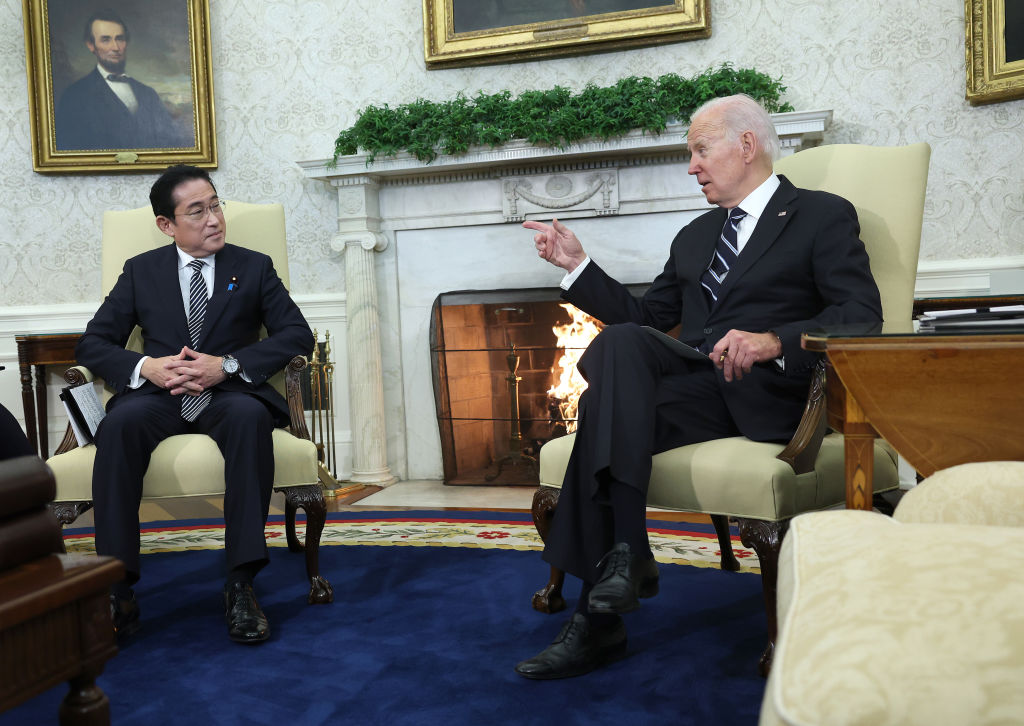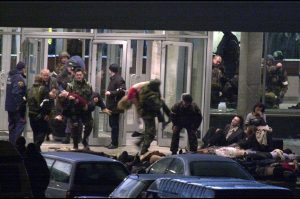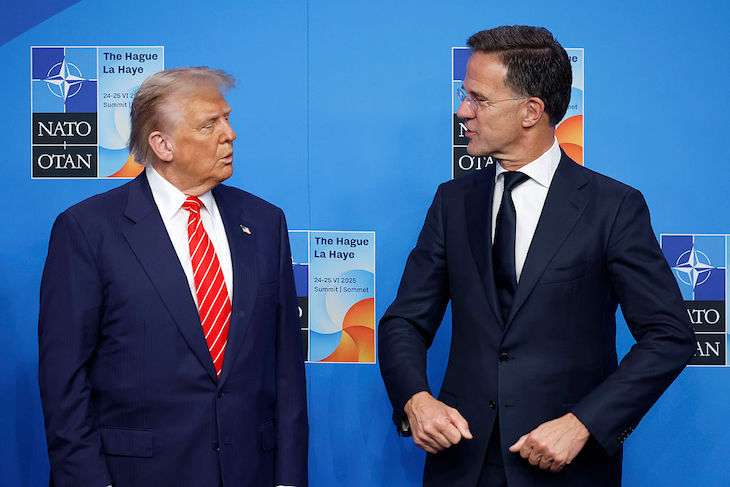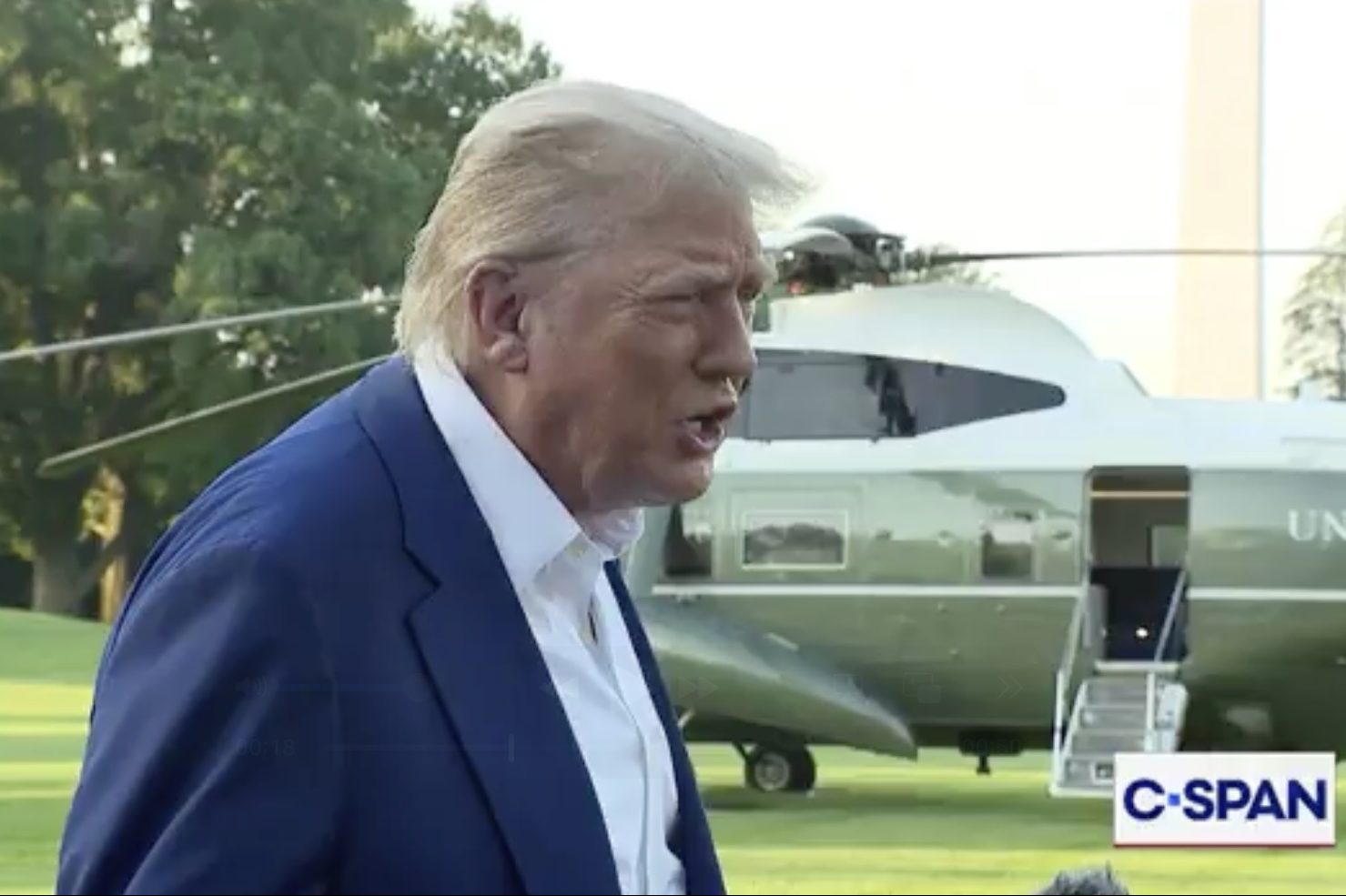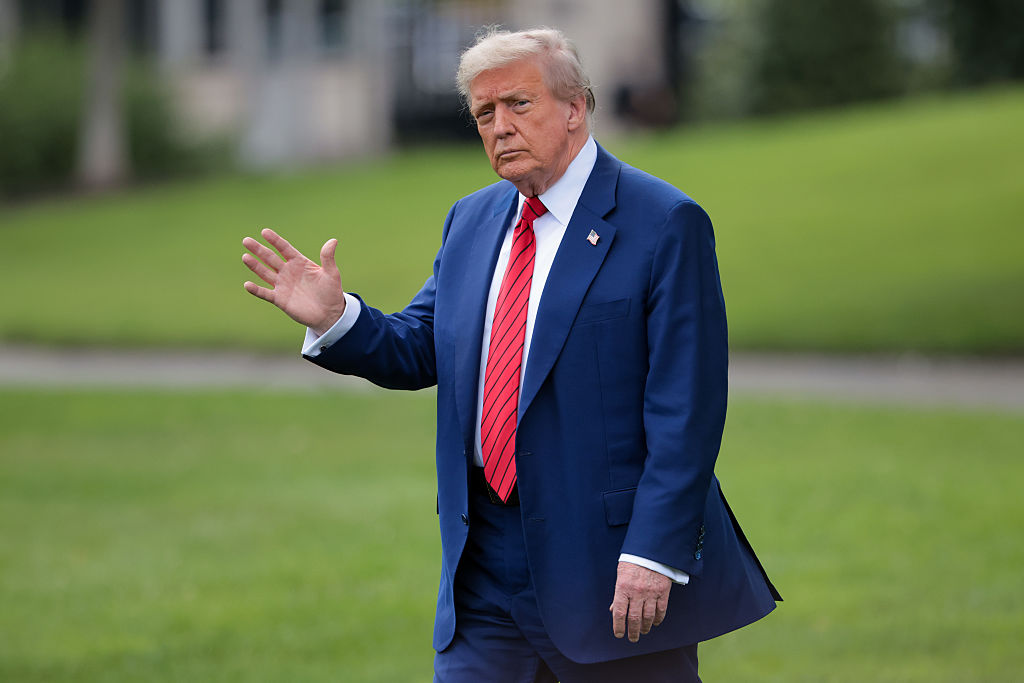It was nighttime in Davos, 8:31 on January 18 to be exact. Japanese journalist Ganaha Masako had been standing out in the cold for three hours near the entrance to a building which, she had heard, was being used as a venue for a World Economic Forum event that evening.
Ganaha had picked up on some additional chatter. Klaus Schwab, the head of the WEF, was rumored to be inside. It was a long shot, but Ganaha wanted to ask Schwab some questions about globalism.
And then, suddenly, Schwab appeared. Fleshy cheeks jiggling slightly as he shuffled along the snow-dusted sidewalk, he stepped cautiously out of the WEF event forum with a few handlers.
Ganaha pointed her camera at Schwab and asked him for an interview. He ignored her and kept shuffling along. His handlers politely but frantically tried to shoo Ganaha away. A reporter daring to ask unscripted questions!
Ganaha persisted and Schwab suddenly stopped mid-stride. He inclined his head toward Ganaha and asked, in his signature Bond-villain accent, “Vich media are you viss?”
“I am an independent journalist from Japan,” Ganaha replied in her silvery voice.
Schwab’s eyes twinkled for a brief moment. “No sank you,” he said, turning on his heels. He ambled to a waiting sedan and was whisked away.
Ganaha’s video of that encounter has been viewed more than four and a half million times.
***
During her sojourn in Davos, Ganaha also scored a surprise video encounter with a dour-looking, nose-wiping Greta Thunberg. She even sat down with Noor bin Ladin, the Swiss-Saudi niece of Osama bin Laden and a Trump-supporting spark plug. In short, Ganaha Masako had been tearing it up in Switzerland. She ought to have been on every news channel in Japan. But then Ganaha seemed to be the only Japanese reporter in Davos doing real reporting — even though she’s a crowdfunded outsider with a smartphone and other Japanese outlets have small armies on staff.
There’s a reason for this. Japan is a powerful country, but the Japanese establishment — its media, politicians, academics, analysts, think-tanks — evinces almost no ability to understand the world, or even Japan, outside the prerogatives of Washington, DC. Japan is mighty, yes. But it remains a place dominated by Washington’s yes-men.
Ganaha’s piercing questions might have upset a Washington-centered arrangement that is gaining serious steam. In December 2022, for example, the Japanese prime minister, Kishida Fumio, announced plans for a budget that will bring military spending up to 2 percent of GDP by 2027. This is historic. It marks a more than 50 percent increase over present figures, and a doubling of the 1 percent of GDP benchmark that has been almost an article of political-religious faith during the postwar period.
The huge spending increase, coupled with the release of three major security-related documents adding institutional heft to Japan’s upgrades in military hardware, represent a turning point. Japan’s wimpy postwar era is over. This East Asian archipelago is making a big play to match its economic might with formidable firepower, something the Japanese establishment has been reluctant to do since the closing months of 1945.
The ripples in East Asian and world politics from this move will be big and disruptive — and much for the better, in my view. Japan sits cheek-to-jowl with Russia, North Korea and the People’s Republic of China, all of which could use a whiff of grapeshot now and then.
Yet the Japanese media, and many politicians, are curiously uncurious about the way the world through which those ripples will propagate works. There are endless Japanese shows and newspaper articles about foreign countries, to be sure. Analysts pontificate from television studios and in print about foreign policy, foreign leaders, foreign trade. Politicians often appear on these shows too. There appears to be a healthy debate going.
But there is almost nothing beyond the standard Washington narrative when it comes to the realities driving geopolitics. Sticking by the Americans’ side is a given, almost a weird patriotic duty. “Global,” in Japan, is virtually a synonym for “whatever Washington wants us to do.”
This is even truer when it comes to knowledge of Washington itself. I have found many in Japan who think Washington is a corrupt and self-serving cesspool and that Japan has no business blindly following orders from Uncle Sam. But when it comes to establishment types in Tokyo, such entreaties fall on deaf ears. Freedom, democracy, human rights — these slogans are repeated ad nauseam, with no apparent interest in whether the US-Japan alliance enhances or trammels them.
***
One indication of how deeply dependent Tokyo is on Washington occurred back in January.
The Japanese center-right has been pushing for a beefier US-Japan alliance for decades, arguing that the postwar Japanese constitution, which emasculated Japan and made it dependent on Washington, should be scrapped.
But when the time came to do it, Tokyo balked. Shinzo Abe, the transformative prime minister who was slain in the ancient capital of Nara last July, spent his entire balance of political capital trying to get Japan to stand on her own two feet. He wanted Tokyo to play a leading role in Asia, not eternal Robin to Washington’s Batman.
One of Abe’s successors, Prime Minister Kishida, however, cashed in that capital for an even closer embrace of Tokyo’s Washington master.
On January 13, Prime Minister Kishida, wrapping up a tour of the G7 countries, sat in the White House with Joe Biden, chatting about the Japanese-American friendship. During his trip, Kishida had played up Japan’s new abilities to launch counter-strikes against enemy bases and the general toughening of Japan’s military strength. Kishida, however, framed it as helping to shore up the deterrence (yokushiryoku) and response (taishoryoku) capabilities of, not Japan, but the US-Japan alliance.
The Sankei Shimbun newspaper, the conservative flagship daily in Japan, ran a cover story on January 14 about the meeting, featuring a photo of a triumphant-looking Kishida descending the staircase from his official plane upon his arrival at Andrews Air Force Base.
The center-left Nihon Keizai Shimbun ran an above-the-fold cover story, also on January 14, announcing that National Security Council spokesman John Kirby had offered his full support for Japan’s defense increases, and looked forward to conducting joint operations.
Alliance boosters in the United States are, like Kirby, foaming at the mouth about a juiced-up Japanese military. “Japan is emerging as an equal partner in the alliance,” they say.
But this is exactly the problem. Washington has a loyal sidekick in Tokyo, which is now bulking up to act even more efficiently as its gofer. But do the Japanese people know what their leaders are getting them into?
Take Ukraine. Establishment support for Ukraine here in Japan is off the charts, surely ratcheted up by the fact that Japan and Russia remain technically at war, the Soviet Union having stolen some of Japan’s northern territory in 1945. Still, the media analysis, even by the “experts,” is basically “democracy good; Ukraine democratic; Ukraine good; Russia bad. PS: Long live the US-Japan alliance.” The mood is breezy, expansive, glib.
Few here even batted an eyelash when NATO chief Jen Stoltenberg came to Japan in late January. Stoltenberg stood at Iruma Air Self Defense Force Base outside of Tokyo and spoke of unprecedented security threats. He and Kishida reinforced this language in a joint statement. I saw no skepticism in the mainstream media as to why the leader of the North Atlantic Treaty Organization was giving speeches at military installations in the western Pacific.
I asked June Teufel Dreyer, professor of political science at the University of Miami and an expert on Chinese politics and East Asian geopolitics, about Stoltenberg’s January visit to Japan. Professor Dreyer replied in a February 4 e-mail:
Conservatives here [in the US] are enthusiastic about Japan increasing arms and, unspoken, admitting that they have the right to use them. I see the Government of Japan inching toward these [goals], but like the asymptotic graph I remember from high school math, never quite getting there.
Kishida attending the NATO meeting in Spain in June [2022] was a milestone, and saying in February of this year that NATO would open an office in Tokyo likewise.
Were I Kishida, I’d say to Stoltenberg, who seems to be a good guy, “What does Japan get out of this? If we send arms to Ukraine, will you help defend the Senkakus?”
It’s a good question. I doubt seriously that Kishida asked it, or would ever think of doing so. He is just happy to be serving Washington well.
***
How sovereign is Japan, really? Or, to ask that question in a different way, how much security has the Security Arrangement with Washington bought us here in the Land of the Rising Sun?
To be honest, many of us in Japan look at Washington and don’t feel very “secure.” Washington lets Chinese spy balloons drift over the continental United States unmolested. Washington won’t stop the years-long invasion of its own country via Mexico (and in fact is, with Klaus Schwab, encouraging it). Washington hasn’t won a war since the Truman administration. Washington bailed on Afghanistan, to the delight and great enrichment of the Taliban.
It is now obvious that Washington will do nothing to stop the invasion of the Senkakus or of Taiwan. Hong Kong fell while Washington yawned. There is genocide in East Turkestan. There was a virus pandemic that originated in Wuhan (remember that?). Copacetic. The South China Sea is Beijing’s lake now, and those who have cried out to Washington for help — Vietnam, Indonesia, the Philippines — have little to show for it. The Japanese mainstream media are propaganda parakeets, but even the above list is obvious from inside Japan.
In late December 2022, I taped a session of a Japanese internet talk show that was broadcast on New Year’s Eve. I emphasized that Washington and America are different. I spoke of the corruption in Washington, the FBI raids on the homes of average Americans and on Donald Trump’s Mar-a-Lago estate. I asked if the town that atom-bombed Japanese women and children in 1945 was really going to help Japanese women and children in 2023. I said that Japan has a much longer history than America and should recover her Shinto roots and provide for her own defense. It was time, I said, for Japan to be Japan again, and not Washington’s adjunct.
It was suggested by another panelist, a staunch alliance supporter and a veteran reporter for major Japanese newspapers with some four decades of experience in Washington, that I sounded like a Chinese spy.
Likewise, when Ganaha has spoken up in favor of a stronger Japan, rumors were spread that she was a Moonie.
And on it goes, with Japanese conservatives proving their mettle to their constituents, the media, and one another by showing the flag — the American flag.
But this is not the end of the story. Ganaha is flooded daily with messages of support from ordinary Japanese citizens. They thank her for breaking through the veil in Japan and telling the truth. I experience it every day myself — people here are waking up in droves. The media is corrupt. The politicians are Davos-Potomac puppets. The alliance is a Potemkin front. Japan needs to get out of its eighty-year hibernation and learn how to be a samurai country again.
It’s already happening. Kamiya Sohei, a fresh-faced politician from the maverick Sanseito party (the motto of which is “Do It Yourself!”), is a sensation. He delights in overturning the establishment’s apple carts. People are flocking to him and his message in droves.
And when the veteran Washington reporter wafted the “Chinese spy” smoke in my direction a couple of months ago, I was also bolstered by an outpouring of support. People in Japan like Americans. They want to work together to fight China. But they don’t trust Washington anymore and are losing faith in their own government by the same measure.
Washington’s yes-men in Tokyo have dominated establishment politics and the media for most of the postwar. During the 1960s, to be sure, a violent Marxist salient in Japan threatened to overturn the arrangement. But now the lapdog status of Tokyo has become Japan’s international brand. And it’s beginning to stink back on the homefront. We average folks in Japan have seen behind the curtain.



